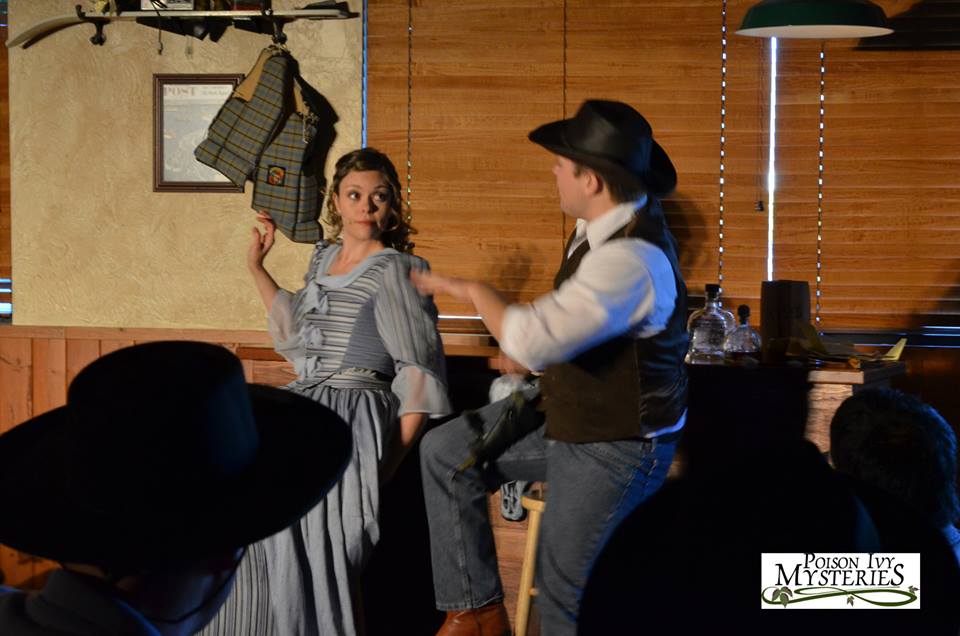WEST JORDAN — Someone’s been murdered and it’s the audience’s job to determine who the killer is. That’s the premise behind Justice at the Gold Dust, the latest murder mystery from Poison Ivy Mysteries. Taking place in the Old West town of Silvercrest, the play is full of colorful characters, intrigue, and snappy songs.

Before the play and after the murder, the audience members mingle with the actors, who answer questions in character. Through these interactions the audience can solve the mystery and help bring justice to the Old West. This type of play simply won’t appeal to some of UTBA’s readers. Quite frankly, the structure of a murder mystery play is a gimmick. However, if an audience member accepts the show for what it is and plays along, then there is nothing stopping them from having an enjoyable experience. I am certainly glad that I gave the show a chance.
The strongest performance out of the cast of six came from Tiffani Barney as Belle Mallory. Barney embraced the role of the young wife trapped in an unhappy marriage, and sparkled in her interactions with the other performers. She was especially charming in the card game and in her songs. Mark Bell was also a pleasant character actor as Jesse Joe James, a local vigilante that tries to impose some semblance of law and order on the frontier. His song was a laugh, and both Bell and Barney have strong enough voices to easily handle a substantial role in a traditional musical.

As strong as these performances are, the highlight of the show was the songs, written by Jeff Parkes. I was quite surprised that the songs were so catchy; Parkes shows an excellent sense of character in his songs, none of which felt clichéd or pedantic. I genuinely think that Parkes has the talent to write a full-length musical.
This isn’t to say that the evening was without flaw. Some actors didn’t maintain a Western drawl for the entire show, and some of the acting (from Scott Stone, for example) felt too much like a presentation, and not enough like a traditional acting performance, for my tastes. Moreover, my attention wandered during the main part of the play (before the murder) because some of the pacing from director Annelise Murphy floundered from time to time. I also thought that Murphy’s script was a little disjointed (such as the sudden shift of attention to Janet after the faceoff between Jesse and Zeke), but she also effectively made the mystery solvable, but not obvious, given the number of red herrings in the story. Murphy also established an effective Old West atmosphere (with the help of Jeremy Tritchler‘s set), which made it easier for me to throw myself into the experience of Justice at the Gold Dust.
Justice at the Gold Dust is a nice night of entertainment, and this type of show—with its strong audience participation component and a dinner—could be great for the first time audience members. The plot is accessible, the actors are fun to interact with, and the play shatters popular conceptions about theatre being boring or stodgy.
[box type=”shadow”]The Poison Ivy Mysteries production of Justice at the Gold Dust plays in Salt Lake City and West Jordan through August 31. Tickets are $40, including dinner. For more information, visit www.poisonivymysteries.com.[/box]

